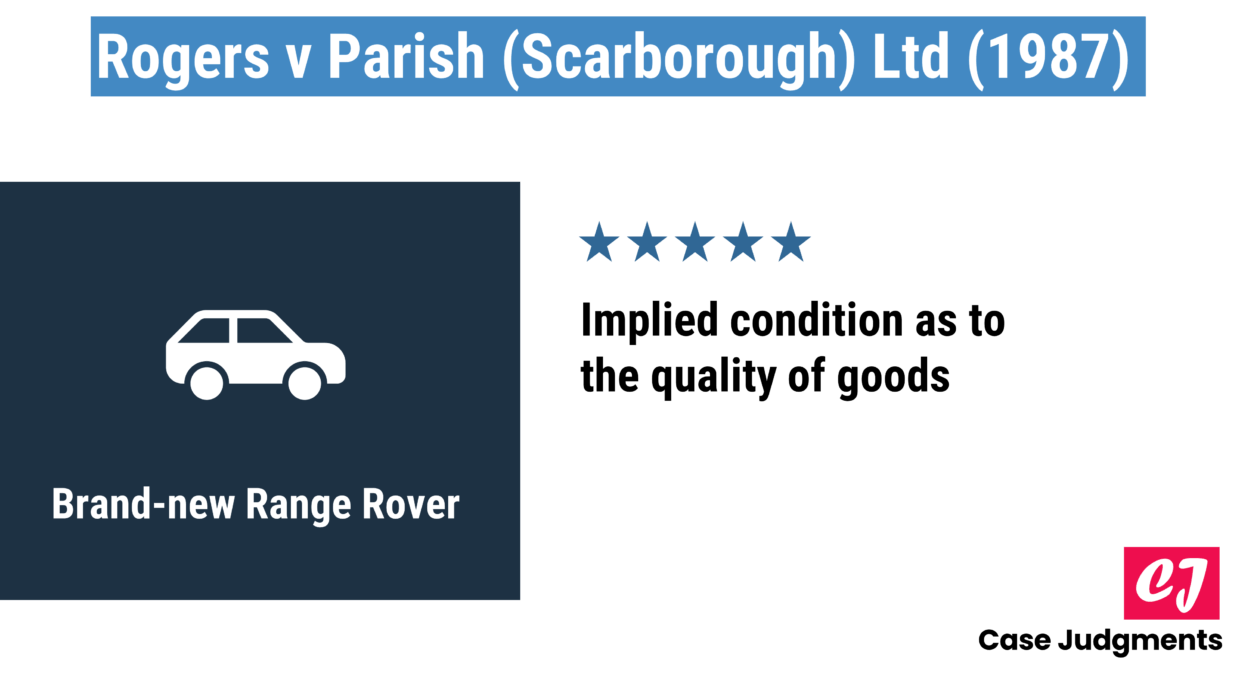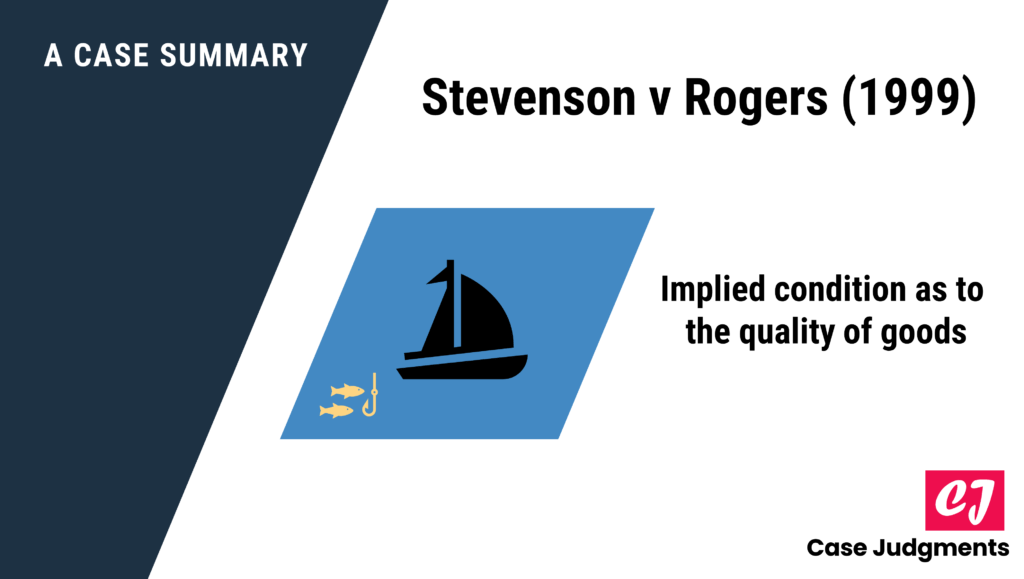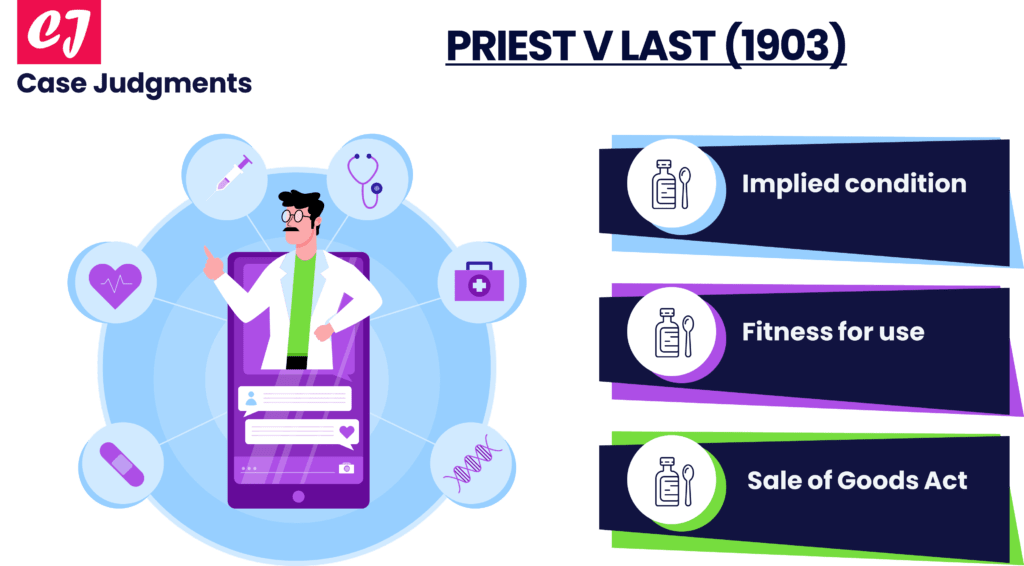
Rogers v Parish (Scarborough) Ltd (1987): A Case Summary
Case name & citation: Rogers v Parish (Scarborough) Ltd [1987] QB 933
Court and jurisdiction: Court of Appeal, England and Wales
Decided on: 05 November 1986
The bench of judges: Lord Justice Mustill, Lord Justice Woolf, Sir Edward Eveleigh
Area of law: Implied condition as to the quality of goods
What is the case about?
This case of Rogers v Parish (Scarborough) Ltd (1987) deals with the condition of merchantable quality in a contract of sale of goods. It assesses that a product is of merchantable quality if it meets the standard that a reasonable person would regard as satisfactory.
Facts of the case (Rogers v Parish)
The claimants spent £16,000 on the purchase of a brand-new Range Rover. After a few weeks of using the vehicle in a manner that was not satisfactory, the claimants decided to return it to the dealers and take another Range Rover as a replacement vehicle. Unfortunately, the performance of the second vehicle did not significantly improve on that of the first.
Six months after the vehicle was delivered, the engine began to misfire at all road speeds, and the gearbox began to make an excessive amount of noise. In addition to that, there were significant flaws in the bodywork. The claimants informed the dealers of their decision to reject the vehicle.
They sought to reject it under Section 14(2) of the Sale of Goods Act 1979 because it did not meet the requirements for merchantable quality.
Issue that arose
Were the claimants entitled to reject the car on grounds of merchantable quality?
Judgment of the Court in Rogers v Parish
The Court of Appeal concluded that the suppliers violated the implied term concerning the quality of their products. The judge ruled that the definition of “merchantability” required taking into account not only whether or not the car was capable of travelling from point A to point B in a secure manner, but also the buyer’s reasonable expectations of being able to do so with an appropriate level of comfort, ease of handling, and reliability, as well as an appropriate level of pride in the vehicle’s appearance.
According to the Court, the buyer’s reasonable expectations of a new Range Rover priced at £16,000 had not been met in this case. The claimants didn’t get what they paid for.
Hence, the decision was taken in favor of the claimants (the buyer).
Ratio decidendi (the rationale for the decision)
In the given case, it turned out that the vehicle had a faulty engine, gearbox, and bodywork; all these were below the standard that is normally expected of a vehicle costing that much. It was decided that the vehicle did not have a quality that could render it merchantable. Even though it could be driven and the damage could be repaired, this did not fulfill the requirements of Section 14 of the Sale of Goods Act 1979. This requirement could only be met if the vehicle was of a standard that was reasonable for a vehicle of its kind.
Moreover, the Court of Appeal ruled that the buyer had a legal right to reject because the expectations of someone who bought a Range Rover were significantly higher than those of someone who bought an ordinary car.
List of references:
- https://www.hzu.edu.in/uploads/2020/10/business-law.pdf
- http://ndl.ethernet.edu.et/bitstream/123456789/61084/1/David%20Kelly.pdf
- https://clickweb.lancashire.gov.uk/viewdoc.asp?id=100085
You might also like:
More from sale of goods:
- Harlingdon and Leinster Enterprises v Christopher Hull Fine Art
- Godley v Perry [1960]
- Re Moore and Landauer [1921]
Hope you found this useful.

